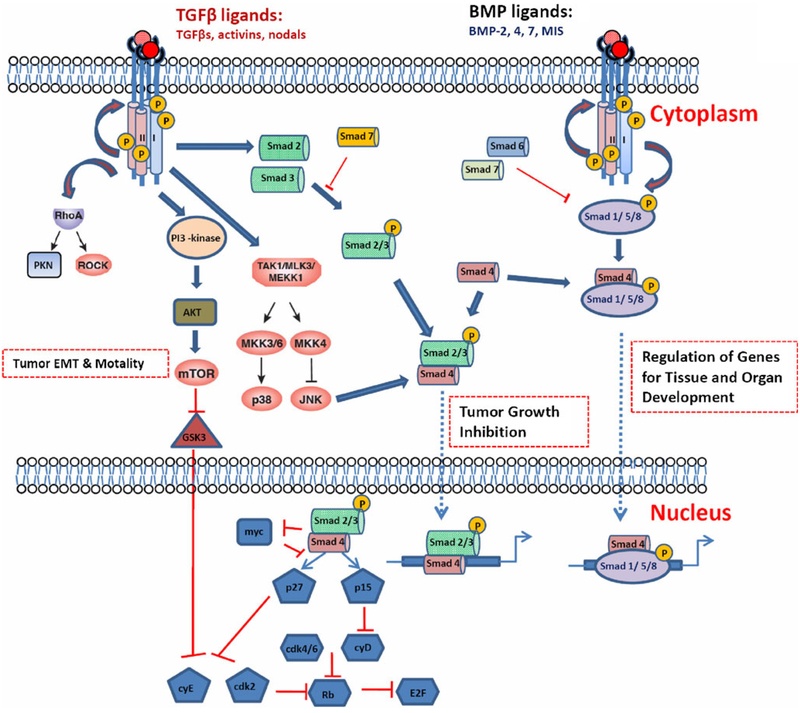Fig. 2.
Simplified TGFβ signaling pathways. The TGFβ ligand transduces its signal through type I and type II TGFβ receptors. Canonical signaling leads to phosphorylation of Smad2 and Smad3, which then combine with Smad4, and translocate into the nucleus and mediate growth inhibition. Smad7 functions as a negative mediator in this process that blocks Smad2/3 phosphorylation. TGFβ also activates many non-canonical signaling pathways through interaction with the same receptors. It includes activation of small Rho GTPases, p38 kinase, and PI3 kinase pathways. These are important in regulating tumor cell migration and metastasis. In addition, bone morphogenetic proteins (BMPs) signal through Smad1, Smad5, or Smad8, which interact with Smad4 and activate or repress targeted gene transcription important for tissue and organ development. Smad6 and 7 are natural antagonists in TGFβ signaling pathway

